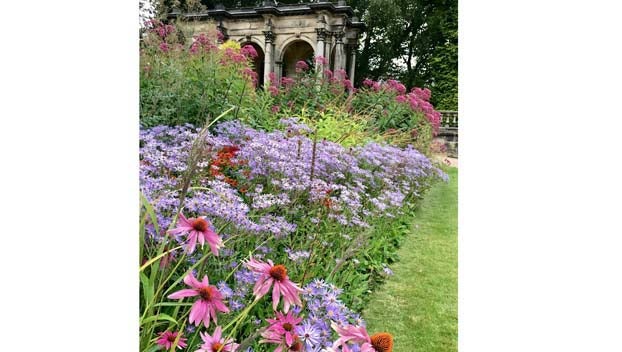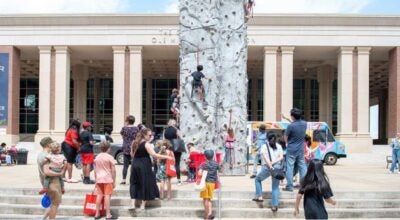Southern gardens replete with ‘floral immigrants’ so why not go a little more truly native?
Published 4:50 pm Wednesday, August 28, 2019
After returning last week from my summer home in England, a walk around the ‘hood unearthed a surprising realization, that what we call our classic Southern gardens are bedded with mostly beauties from afar. Floral immigrants, so to speak.
Oh, there are some natives, notably oaks, pines, magnolias, dogwoods, but I estimate that over eighty percent on my street alone, from azaleas, camellias, roses, boxwood, and crape myrtles to our turfgrasses and groundcovers, are from Asia. Not to mention daylilies, chrysanthemums, and daffodils.
Is this a bad thing? Not necessarily; what’s important to average gardeners regarding plant choices are shapes, sizes, seasonal flowers or colors, and being adapted to our climate and soils without a lot of trouble to keep up. With maybe a few butterflies thrown in.
So, what’s the big deal about using more native plants and wildflowers in regular gardens? In a word, plenty.
You well may imagine that, as a past president of the Mississippi Native Plant Society, I can rattle off a few of their benefits, which to be bluntly honest also apply to the hundreds of non-natives that have become landscape mainstays; other words, they crucially fit in as regular hardy garden plants. Which is enough right there.
That’s just how they’re used. Few people deliberately think of magnolias, yaupon hollies, yucca, yellow Carolina jessamine vine, sweet shrub, cedars, river birch, oakleaf hydrangea, bald cypress, redbud, oaks, and dogwoods as native plants; generally they are just garden plants which happen to be native, almost as an afterthought.
True, there are Asian and hybrid versions of all those which do almost or as well. Difference is, when we include a lot of our natives we also nurture a special “sense of place” which helps our gardens feel and look more Mississippi-esque (is that a word?), and at the same time preserve some of our biological heritage.
Those aren’t very tangible, but are pretty important.
While I delight in photographing our natives used worldwide in botanic and personal gardens, I cringe to hear visitors to Mississippi commenting on how Southern our gardens look, when they are only seeing azaleas, crape myrtles, camellias, salvias, and gardenias, none of which are from here.
Mine is by no means pure Mississippi; I love my nandina, canna, lantana, and Japanese maples. But there are mostly natives in it because, well, they work. And they look right, and are loaded with dependent native wildlife. And when I am home in Mississippi, they make me feel at home.
Which, by the way, this why for over twenty years now I have publicly promoted the idea of having the single most identifiable icon from our state – the flower of our magnificent, world-renowned native Magnolia grandiflora – on our state flag. After all, we’re known far and wide as The Magnolia State. Not trying to stir up anything, just saying. For my earnest personal reasoning, check out MagnoliaFlowerFlag.org.
Anyway, back to gardens. Look over my earlier list of native plants; in my tiny Jackson garden I actually grow all those, plus buckeye, sumac, cherry laurel, beautyberry, trumpet creeper, coral honeysuckle, cross vine, narrow leaf sunflower, wild ageratum, spiderwort, phlox, monarda, ferns, purple coneflower, black-eyed Susan, coreopsis, goldenrods, liatris, Louisiana iris, and agaves. And more. So my garden says Mississippi to me and local wildlife. Year-round.
That’s a good list for anyone around here to start with. Might not be room left for azaleas, which your neighbor has too many of anyway.
Note: The Mississippi Native Plant Society is holding its annual meeting in Jackson on September 7; for more information, go to MississippiNativePlantSociety.org.
Felder Rushing is a Mississippi author, columnist, and host of the “Gestalt Gardener” on MPB Think Radio. Email gardening questions to rushingfelder@yahoo.com.






